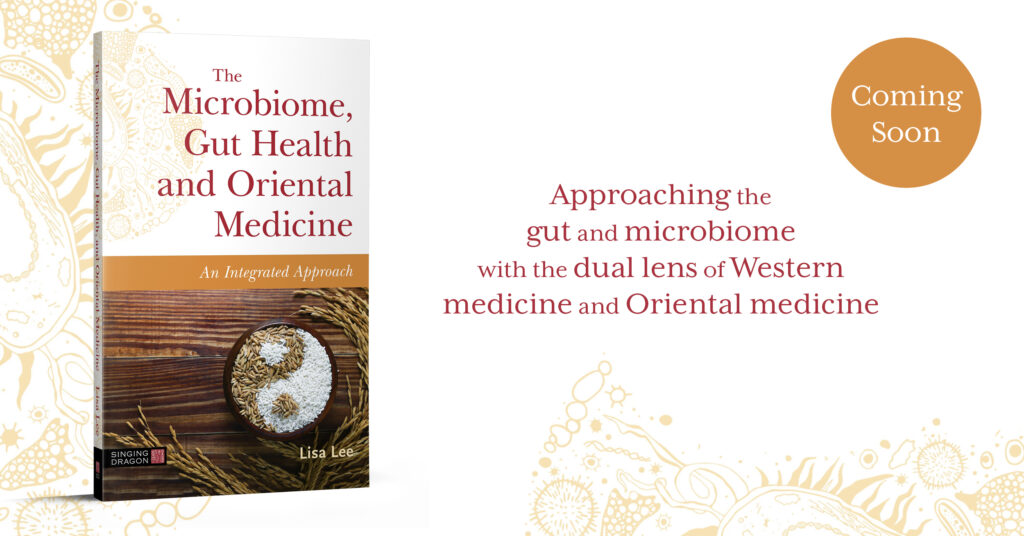In this Q&A blog, author and academic, Dr Olivia explains talks about the process of writing her book and why she chose to write on the topic of male infertility.
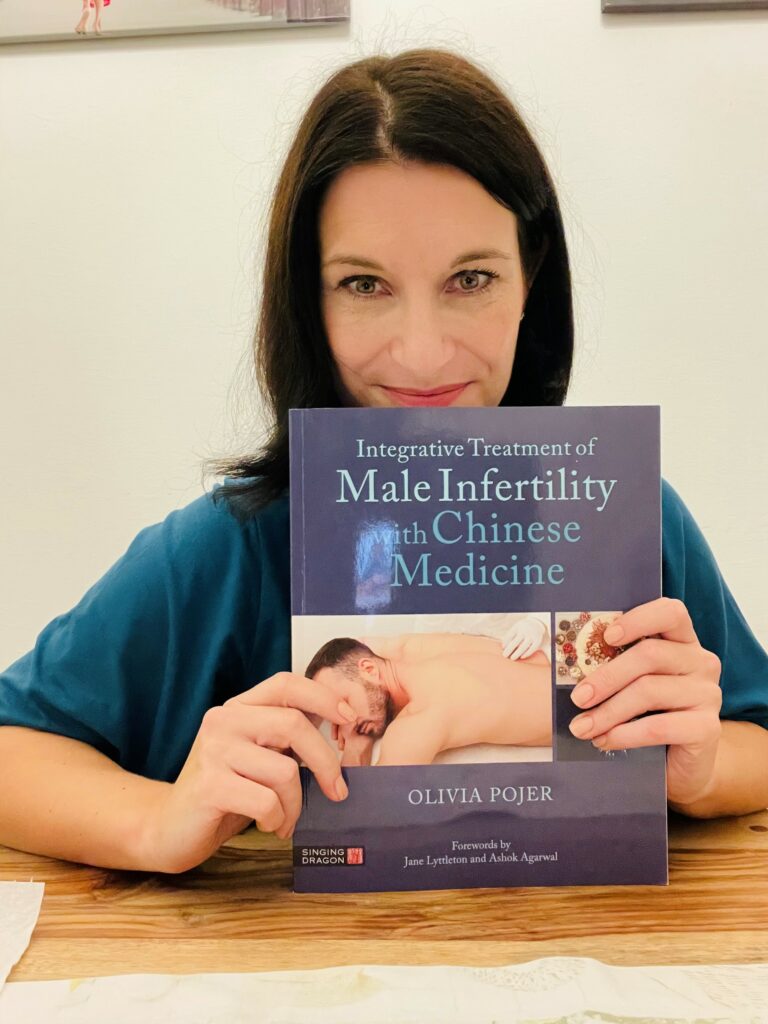
In this Q&A blog, author and academic, Dr Olivia explains talks about the process of writing her book and why she chose to write on the topic of male infertility.

From environmental pathogens to modern diet, our cells are inflammaging – aging through increased inflammation. How can yoga help?
By Leonie Taylor and Charlotte Watts, co-authors of Yoga & Somatics for Immune & Respiratory Health
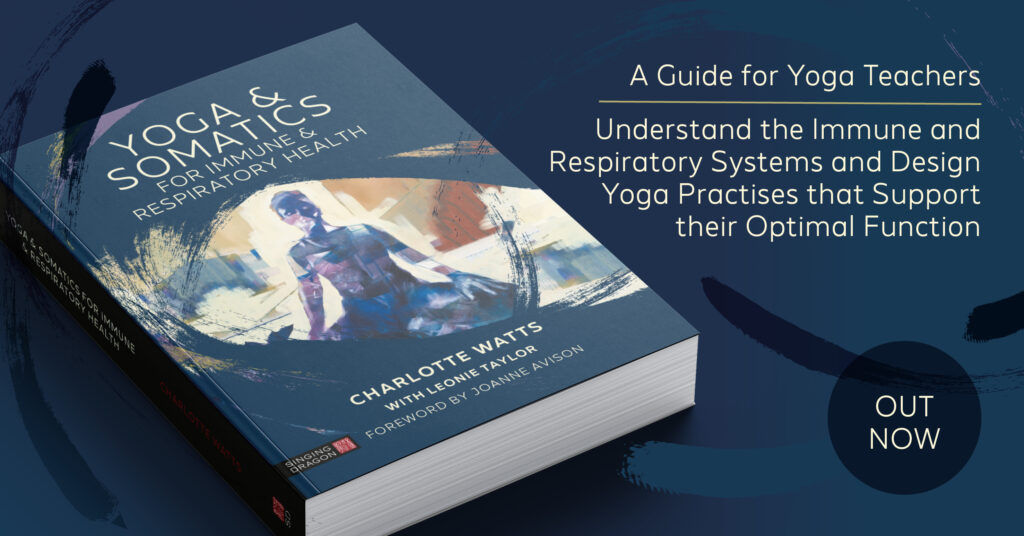
‘Inflammaging’, a term coined by Italian researcher Claudio Franceschi in 2000, refers to the low-grade chronic inflammation that often characterises the ageing process. This may partially explain why some older people suffer more from diseases such as COVID-19. Beyond this pandemic, many refer to the creeping symptoms related to inflammation – such as joint pain, loss of mobility or issues related to immune and respiratory health – as an inevitable sign of ageing1.
Continue readingDr. Pojer is president of the OGKA (Austrian Society for Controlled Acupuncture and TCM) and an academic at the Medical University of Graz (Austria). She has written a post based on the topic of her new book Integrative Treatment of Male Infertility with Chinese Medicine.
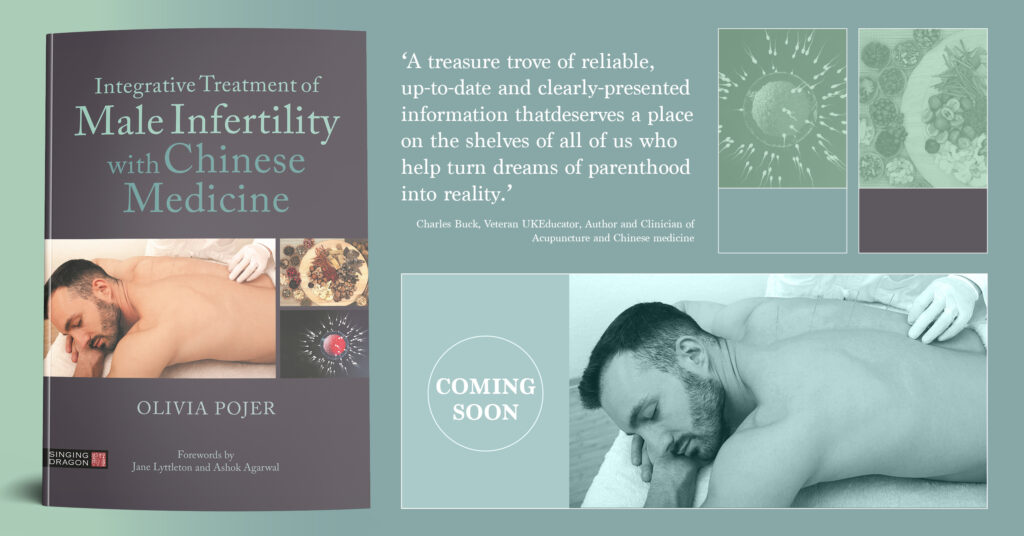
On average one out of six European couples experience sub/infertility. Looking at the reasons for unfulfilled parenthood, approximately 50 percent are due to female pathology and 50 percent are due to male issues. However, society as well as medicine (both Western and Eastern approaches) tends to focus on treating the female side of childless couples. Since the percentage of male factor infertility is the same as that for female infertility, treatment of the male partner is underrepresented. The overall sperm quality has dropped by 50% within the last 40 years but additionally, the COVID pandemic has aggravated the problem. On top of this, the male factor plays an important role in early pregnancy loss and should be treated to prevent miscarriage.
Continue reading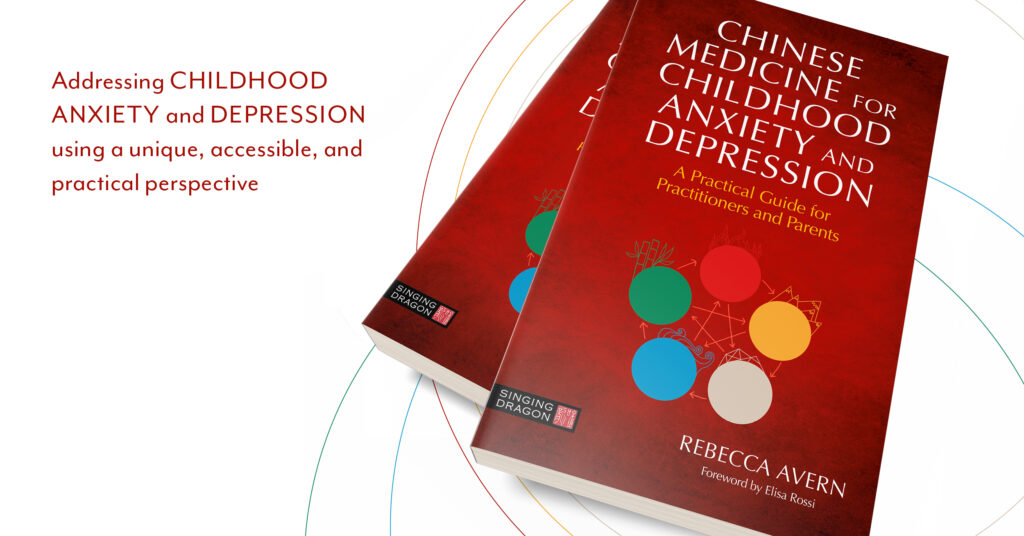
My first book, Acupuncture for Babies, Children and Teenagers, has a chapter on anxiety and depression which is purely for acupuncturists to guide them in treating it in the clinic. I realised over the years, however, that there is so much that is helpful in the way that Chinese Medicine understands people which can be applied outside of the clinic. This wisdom can be used by parents, at home, to make changes which will support their child’s mental-emotional health. That is why I chose to write a second book, for parents and practitioners.
One of the many tools we have to support young people whose mental health is struggling, is our ability to make a ‘bespoke’ diagnosis of exactly the nature of each person’s distress. ‘Anxiety’ and ‘Depression’ are necessary but limiting labels that are used to describe a multitude of different feeling states. Using the Five Element model, we can begin to understand that one child’s anxiety is very different from the next, and that each child’s depression will have a unique flavour to it.
Let’s take a look at each Element to illustrate this.
Continue readingFollowing the success of her previous book Yoga Therapy for Digestive Health comes Charlotte Watts’ timely exploration of our immune and respiratory systems, and how yoga and somatics play an integral part in maintaining whole-system health. We take a look inside the book, available to pre-order now…
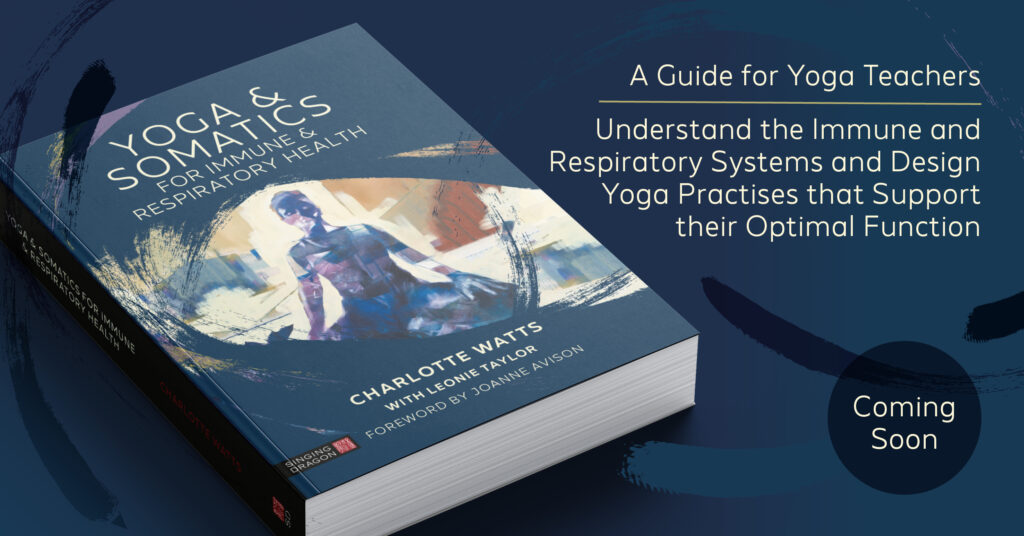
When the UK went into its first COVID lockdown in 2020, people were abruptly separated and restricted from social contact. It wasn’t simply the virus itself that had devastating consequences for global health but the ensuing fear and reactivity, the effects of which are still rippling through our nervous systems. It was at this flashpoint of collective and individual trauma, stress and societal breakdown that Charlotte felt compelled to write Yoga and Somatics for Immune and Respiratory Health, knowing how vital the free flow of movement and social engagement are to mental and physical wellbeing. She was struck by the irony of how the focus of so much anxious attention at this time – immune and respiratory health – are most affected by stress and trauma.
Drawing on decades of experience as a nutritional therapist and therapeutically based yoga teacher, Charlotte has artfully brought together an impressive body of scientific research from diverse fields – from neuroscience, epigenetics, psycho-neuro-immunology, polyvagal theory and more.
Continue reading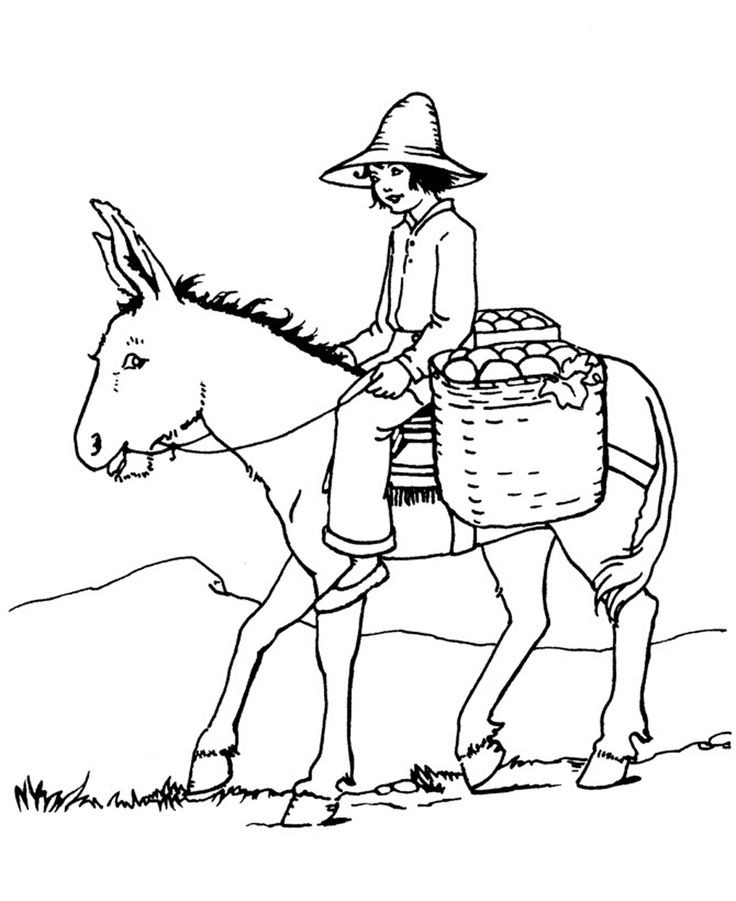
In the past, when I presented workshops on depression, I deliberately avoided in depth discussion on treating suicidal depression with Chinese medicine. Not because you can’t treat it, but because there were several factors to consider prior to committing to treat such a patient.
Looking back at my Singing Dragon webinar from September 2020, I saw that I had also left out any discussion on suicidal depression. I decided I needed to address this moving forward.
Therefore, this blog will discuss treatment strategy for patients with suicidal depression using two analogies:
I have also included the bonus 1-hour free video on ‘Depression: The Silent Killer’. In the video I discuss Acupuncture Point Combinations (APC’s) to treat a range of different types of depression according to organ imbalances.
Continue readingMeet Sun, an intuitive and curious child whose grandparents are Traditional Chinese Medicine teachers and practitioners. Sun has been studying with their grandparents, Grandparents Terra, over the last two summers when they stayed with the grandparents Terra in the country. The grandparents Terra have now moved back to the city and below is a conversation Sun had with some students at the Chinese Medicine School where the grandparents teach. Sun is giving an example of the information they have learned from their wise tutors. The information in this conversation can be gathered from the two books Sun’s Season of Channels and Sun’s Dance of the Channels (available for pre-order) both of which are published by Singing Dragon.
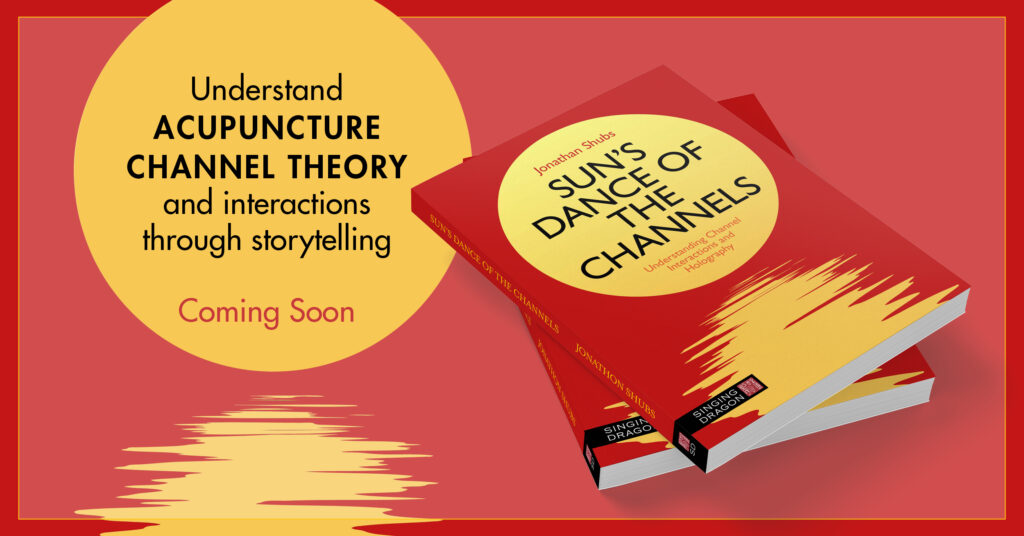

Sizzling summer temperatures, while exotic for those of us based in the United Kingdom, can be a bit enervating and leave one lacking in energy. How best to adapt your yoga practice so that the practices chosen help cool and soothe rather than exacerbate the heat? According to Ayurveda, the sister science to Yoga, in summer the pitta dosha (one of the three ‘doshas’ or constitutions) can be aggravated, leaving us feeling extra hot and potentially short-tempered. Adapting your practice for summer according to Ayurvedic principles involves choosing cooling and calming postures and practices that will help soothe and balance rather than aggravate excess pitta.
If you’re not able to get away to the beach just yet, here are a few yoga tips for keeping cool this summer:
Continue readingWritten by Isobel Knight
On 22-4-22 I had the honour of being interviewed by Kerry Gabrielson who runs a Podcast series called, ‘Hypermobility Happy Hour‘. The interview assumes some knowledge on the topic of hypermobility, heritable connective tissue disorders especially the ‘hypermobile Ehlers-Danlos Syndrome’ – the one and most common subtype of a total of 13 different (much rarer) types of Ehlers-Danlos Syndrome (EDS). The other condition much referred to is Hypermobility Spectrum Disorder (HSD), which is the resultant diagnosis if one has symptomatic hypermobility and doesn’t meet the (2017) criterion of hEDS. So what do these terms mean in lay-terms?
What is meant by Hypermobility?
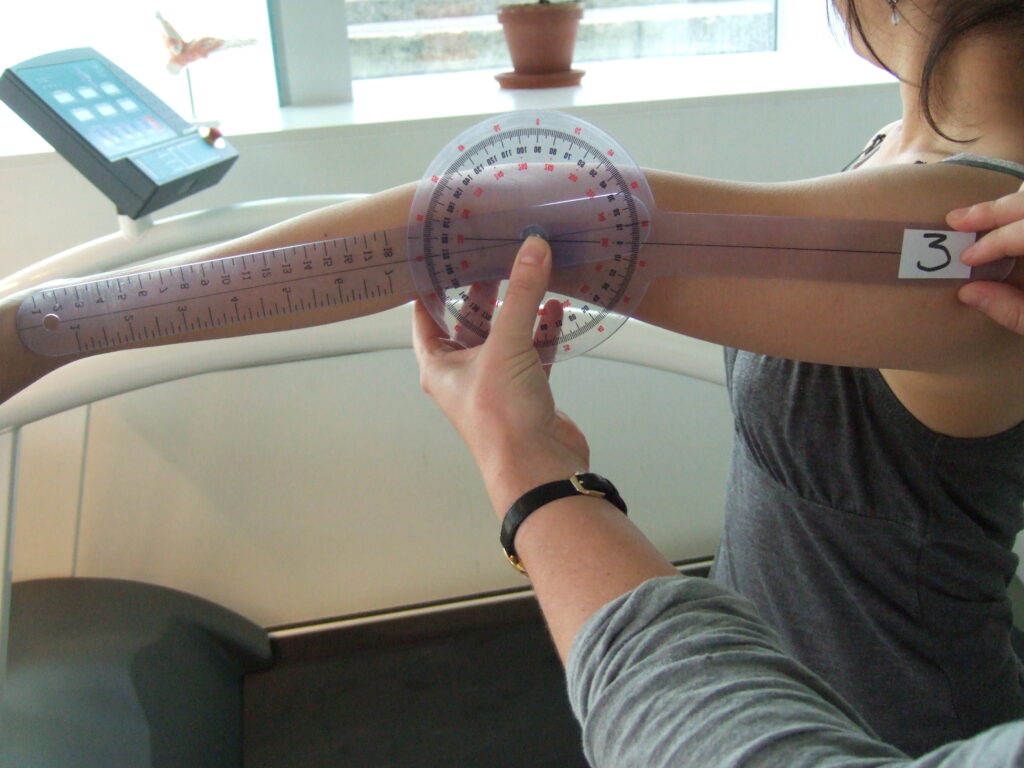
By Lisa Lee, Lic.Ac, PhD
As we approach the final countdown to the release of my book exploring the fascinating cross-over between the microbiome, gut health and Oriental Medicine, and the opportunity this affords us as practitioners and patients of Eastern or Western medicine, and as human beings, I noticed the coincidental timing of the ‘Healthy Eating Week’ run by the British Nutrition Foundation. I pondered upon seeing this on the meaning of ‘healthy eating’. I also found myself thinking about how we often underplay the significance of food as medicine and the role of inadequate diets in the initiation of disease. For there is a real paradox in many advanced societies that despite the abundance of food available, dietary deficits remain significant, and health problems linked to our diet and digestion are all too common. Many will rightly question what lies at the root of today’s struggle to define and implement healthy eating to achieve sustained good health.
